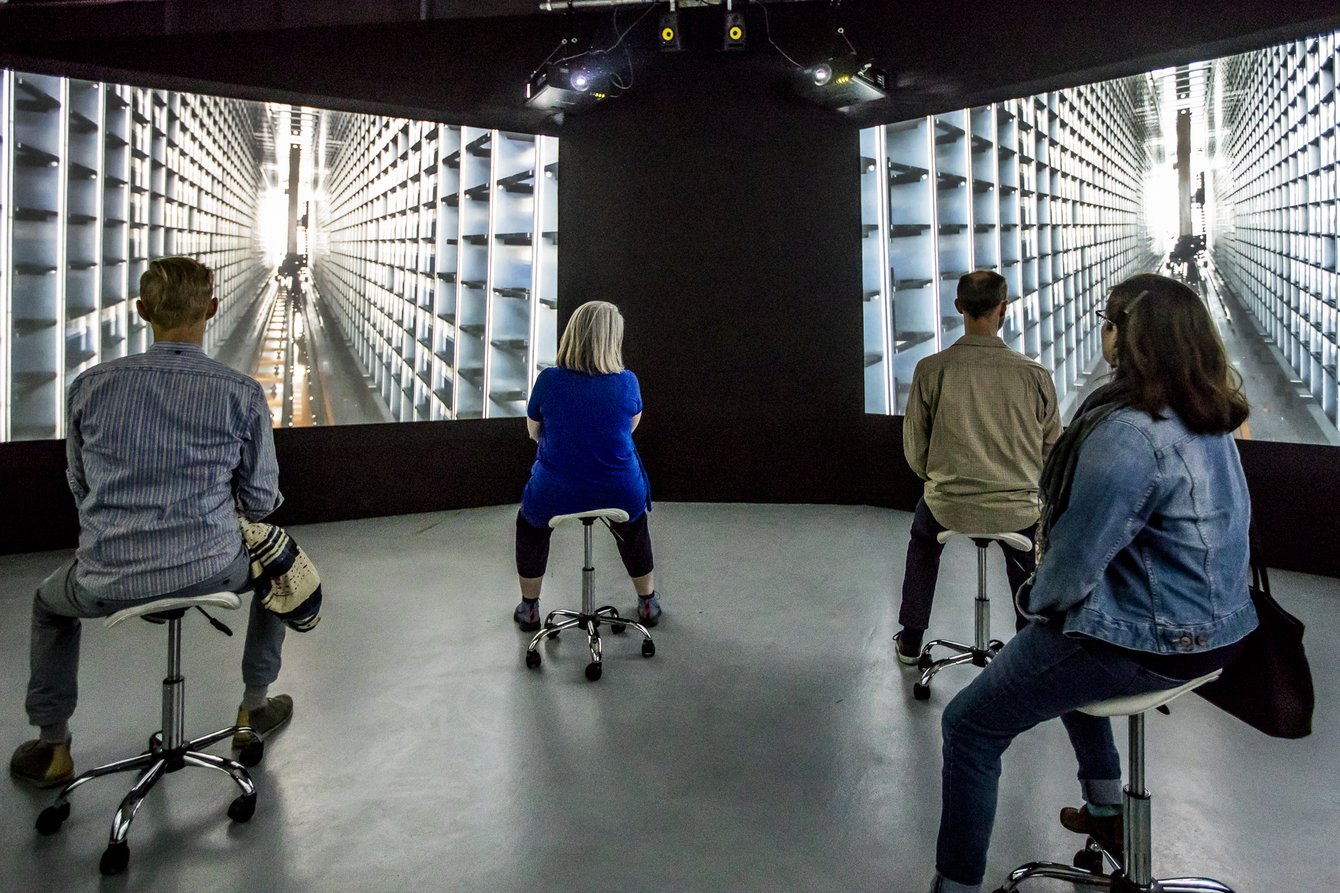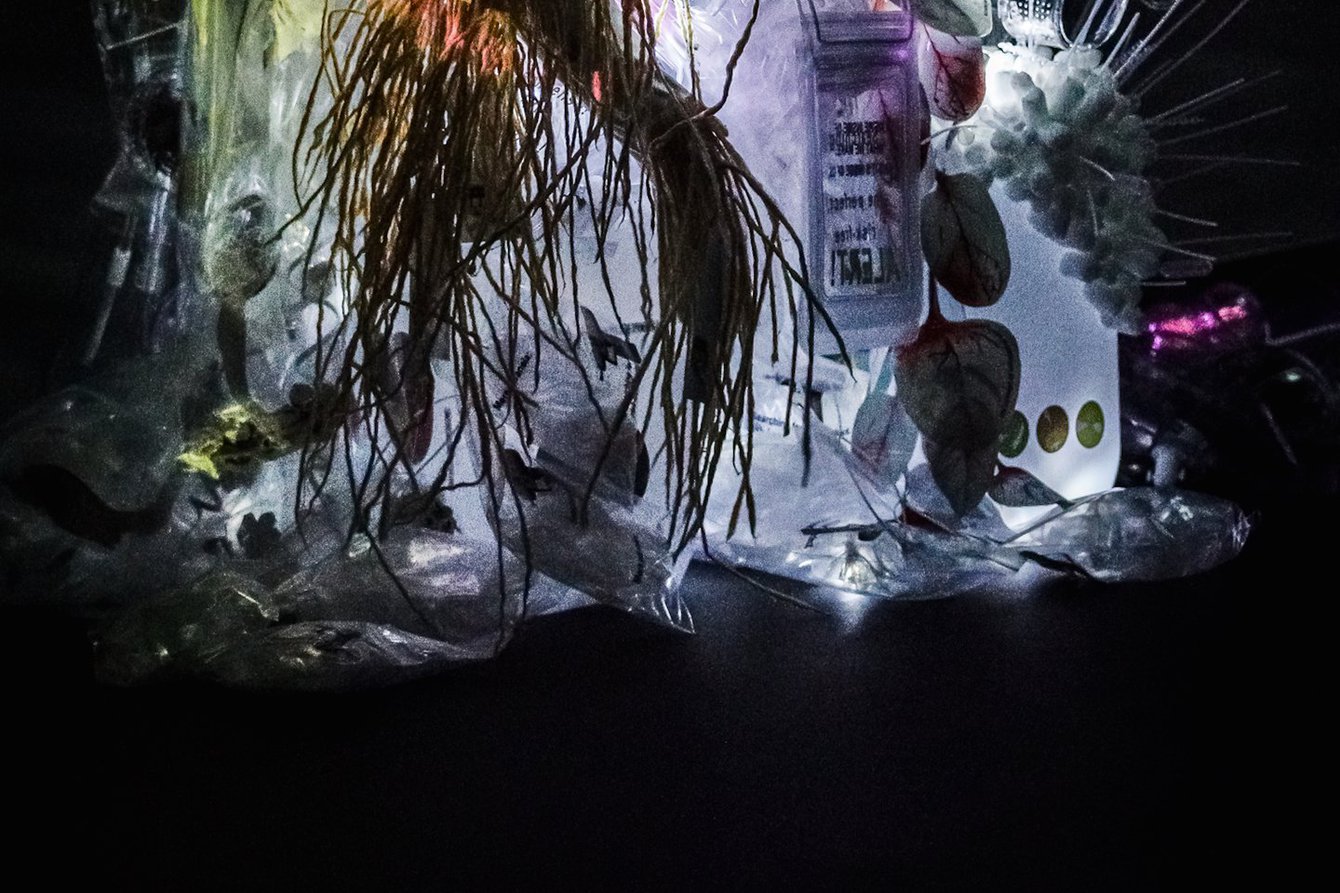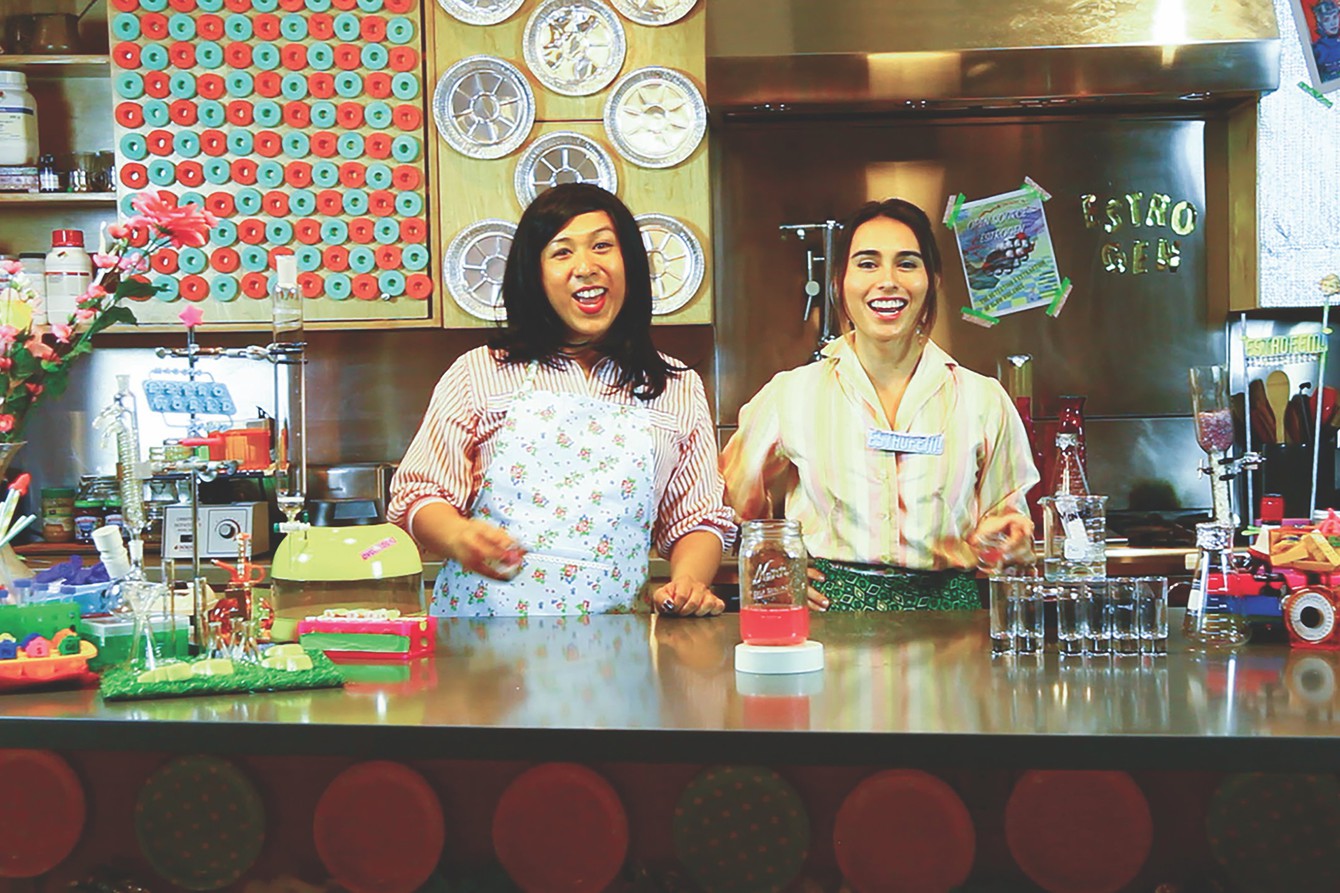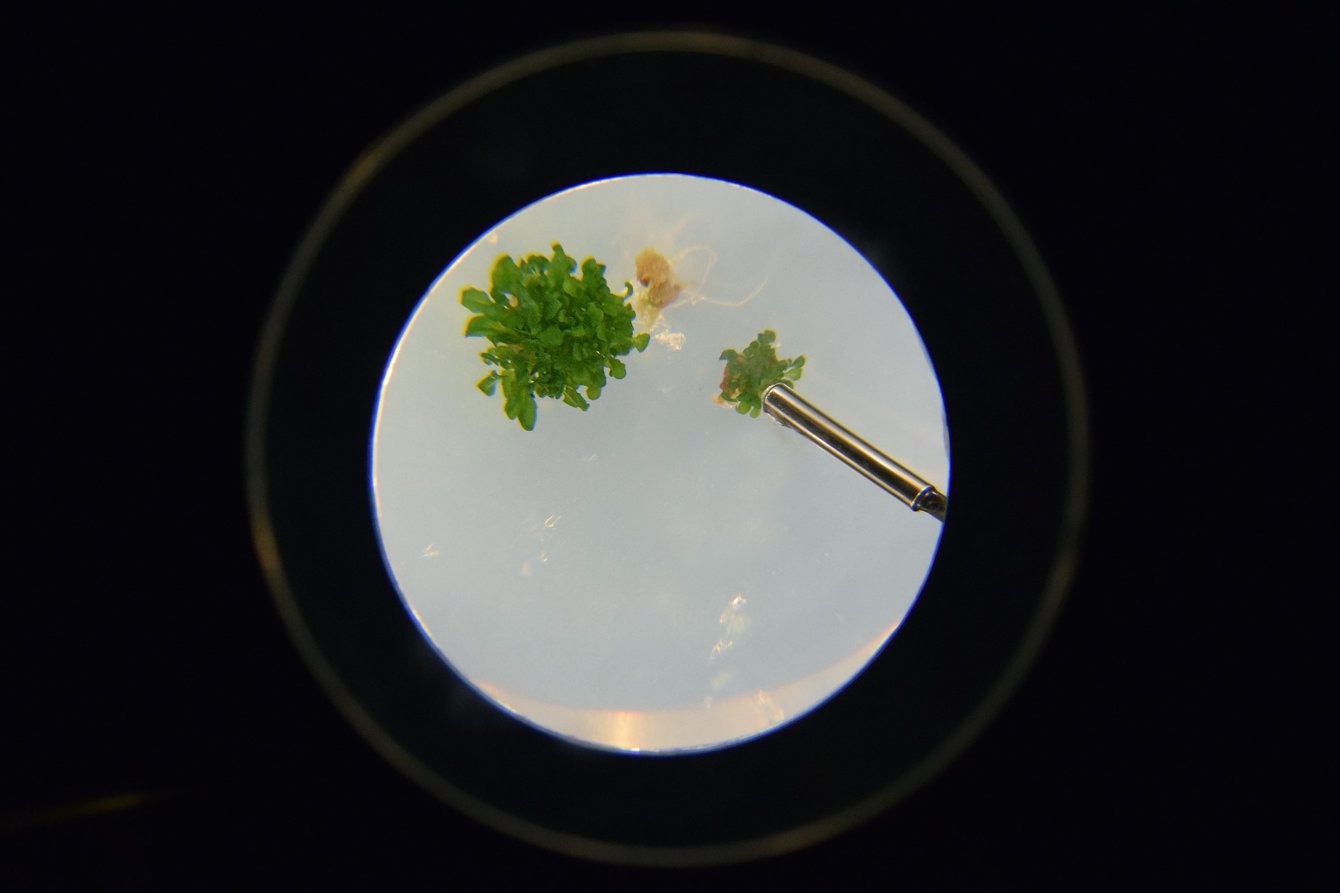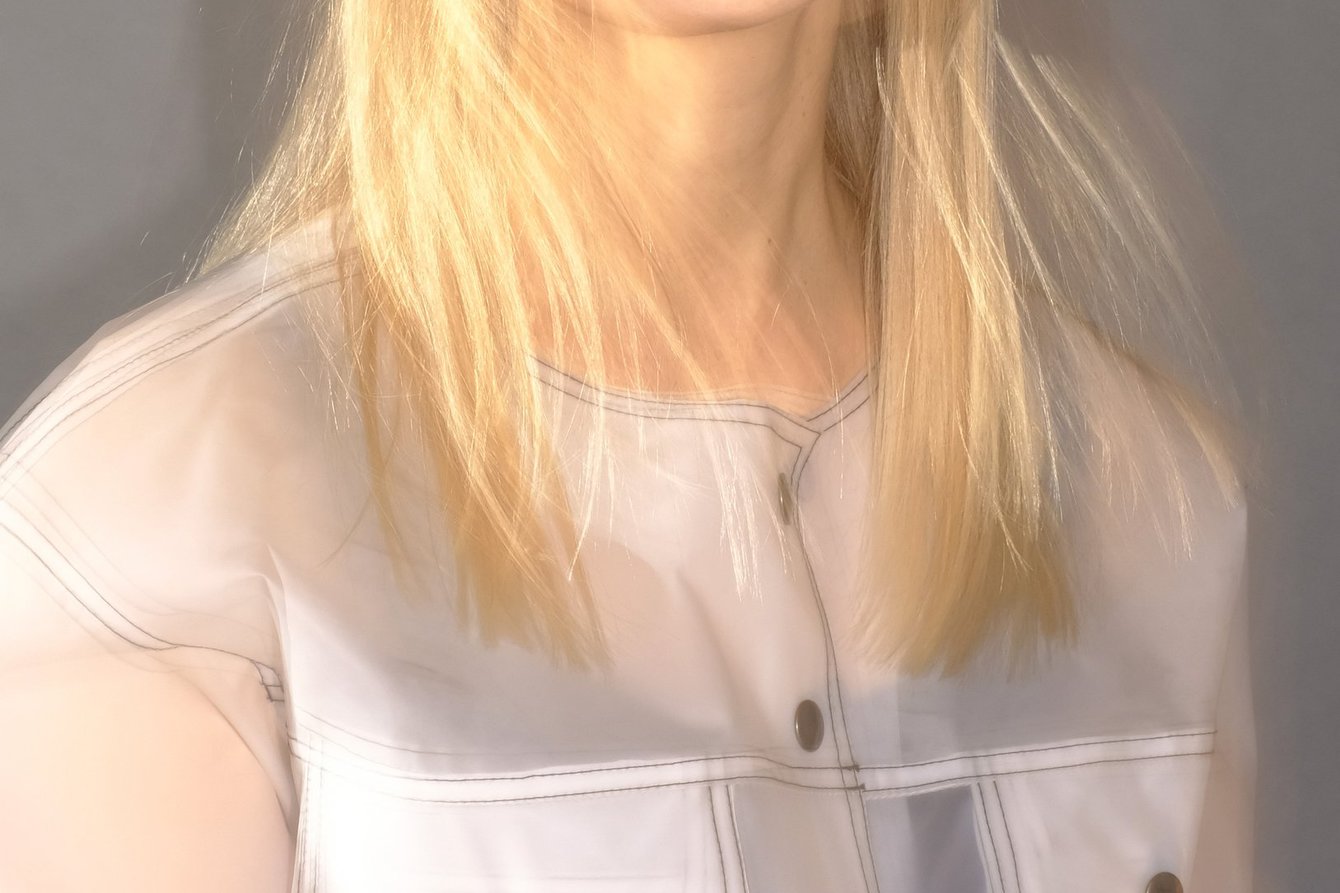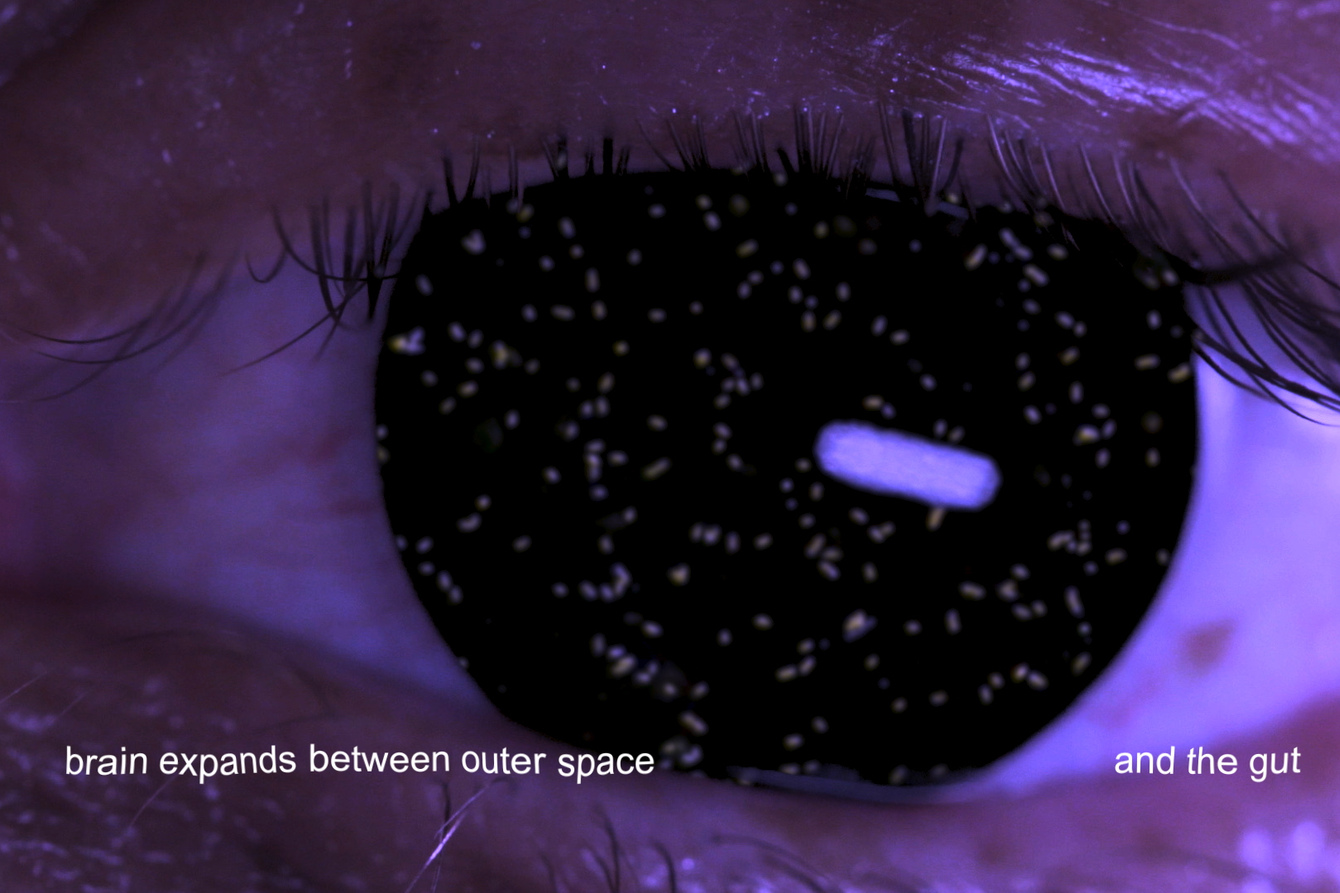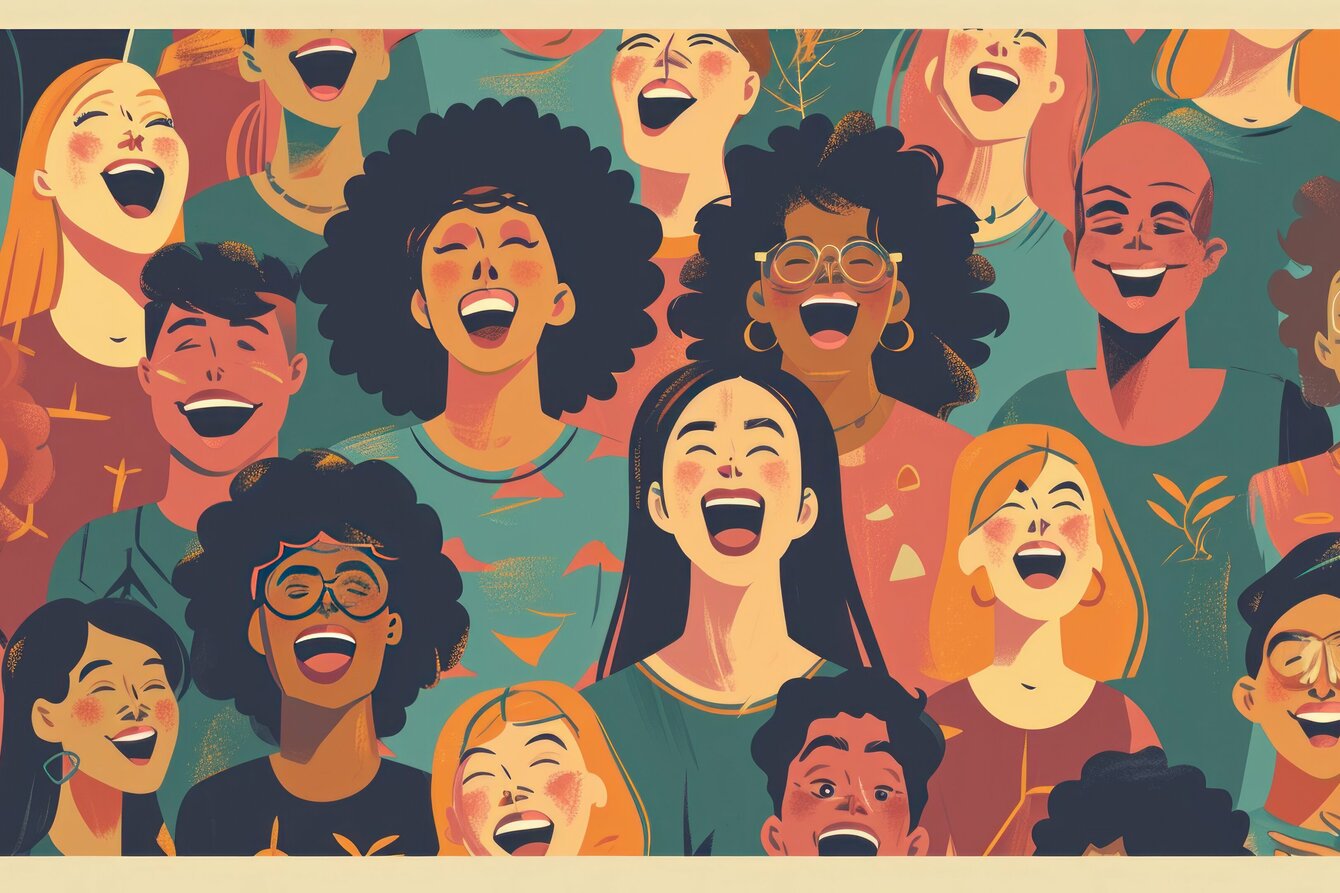Exhibition
›Bodies in Trouble‹
Aliens in Green, FAM_, Heather Dewey-Hagborg, knowbotiq, Mary Maggic, Špela Petrič, Silke Schönfeld, Jenna Sutela, Luiza Prado de O. Martins
Free admission
The exhibition shows installations and films that comment on and examine indepth various aspects of the festival’s theme. The works, which are spread throughout the PACT building, open up new and different conceptual dimensions and narratives that arise from the conflicts inherent to the relationship between the body and technology. The themes addressed in the works range from the anonymity of genetic databases (Heather Dewey-Hagborg) to the deconstruction of the promises and neocolonial aims of the biotech sector (knowbotiq), and the democratization of biotechnology through DIY processes (Mary Maggic). Špela Petrič deals with the hybridity of living beings and the resulting new forms of kinship between different life forms. The idea of the universal communion of living beings is the basis for a film by Jenna Sutela. Through a laboratory situation, Aliens in Green demonstrate what happens when, for example, we ingest industrially produced biochemical substances through food or pharmaceutical compounds, which alter our bodies from the inside out and impact the environment in ways still to be determined. The group FAM_ creates interventions using visuals and different stations throughout the exhibition, which convey the queerfeminist perspective on these topics. Luiza Prado de O. Martins asks how today’s biotechnology is culturally conceived and understood — and what kind of knowledge is ignored, particularly in postcolonial situations in various regions of the world (in this case focusing on the example of Brazil). Silke Schönfeld developed a film with a neighborhood group of children and youth who regularly visit the WerkStadt, PACT’s satellite project space in Essen-Katernberg. The film lets us explore this specific neighborhood as a living organism (premiere on 14.7.).
With works and projects by:
Aliens in Green
FAM_
Heather Dewey-Hagborg
knowbotiq / Lamin Fofana
Mary Maggic
Špela Petrič
Jenna Sutela
Luiza Prado de O. Martins
Curated by: Fabian Saavedra-Lara
Aliens in Green
›Xenopolitics‹
Installation
Studio 3
The biohacking laboratory activated by the artist group Aliens in Green in two performative workshops is also accessible beyond these working sessions as part of the exhibition. On view are not only working materials and tools from the ongoing process but also illustrations and diagrams that provide context as well as in-depth information on the artists’ longstanding interest in the ecological, political, and economic aspects of the alteration of the human body - and the hormonal system in particular - through industrially produced biochemical substances. The materials also speculate about possible counter-narratives to this complex.
FAM_
›Visuals, Scores, Exitpoints‹
ongoing interventions
The label FAM_ has developed various entertainmentmodules for ›Blue Skies‹ including scores, visuals and exitpoints which the group has installed throughout the PACT building. Scores can be understood as games and suggestions for changes of per spective, making interpersonal, spatial and aesthetic parameters of the cur rent festival situation observable and changeable. Simultaneously, they invite the participants to actively engage in shifting the given schedule. Two exit points can be found at two secluded locations in the house. Here, tools are available to enable visitors to briefly step out of, or drift away from the activity of the festival.
Artistic collaborations with:
Anastasiia Antonenko: ›sorry about the saliva‹ (Video, Exitpoint)
Sophia Gröning: ›GRIP‹ (Video, Kachelfoyer)
Lea Hopp: Video/Visuals (corridor), VJing
Julius Continental: Carpets (Exitpoints, Foyer)
Sandy: Playlist (Exitpoint)
Heather Dewey-Hagborg
›T3511‹ (2018)
Video, 9:04 Min.
Studio 1
›T3511‹ tells a love story set in the post genomic future. A female biohacker buys the saliva of an anonymous donor. Structured like an experimental documentary film, the work follows the protagonist’s growing obsession for the anonymous donor. The video installation draws the viewer into a new world, in which genomic sequencing has long become a prevalent procedure and the human body has become commodified as biological material. Dewey-Hagborg’s narrative is based on scientific fact, not fiction. ›T3511‹ exemplifies a growing market, in which the human body is broken down into commercial compo nents; bodily fluids, cells, DNA and biological data form the new currency that is currently fueling emerging biotech companies.
knowbotiq / Lamin Fofana
›Genesis Machines – La Pompa Agricultura Transsubstantia‹ (2018)
Installation / Video / Performance
Studio 2
Is natural reproduction in humans an outdated procedure? Citing researchers in molecular biology, the artist duo knowbotiq claim that »Sex is spectacularly inefficient« while »DNA is extremely programmable.« What does the increasing advancement of genetic engineering mean for our understanding of body, life and reproduction? The performative installation ›Genesis Machines, la pompa agricultura transsubstantia‹ conjures up decisive moments of upheaval in the development of an agricultural-industrial technosphere: the large biotech laboratories of the world are nigh creationistically motivated to design various scenarios of reproduction in which the body has long since become obsolete. In knowbotiq's interpretation, synthetic biology, nanotechnology and the exploitation of organic matter determine the manipulation and production of life – whether in vivo, in vitro or in silico.
Artists knowbotiq (Yvonne Wilhelm, Christian Huebler) In collaboration with Nicolas Buzzi, Lamin Fofana, Fred Hystère, Ira Wilhelm Entwickelt with the support of HKW – Haus der Kulturen der Welt Berlin and HEK – Haus der Elektronischen Künste Basel Loan from Kunstsammlung der Stadt Zürich
